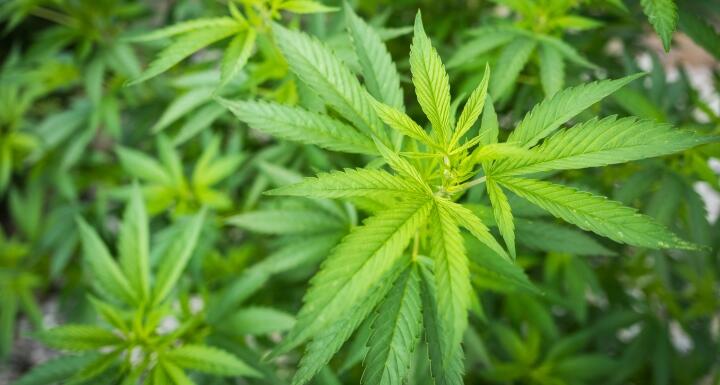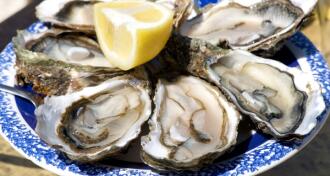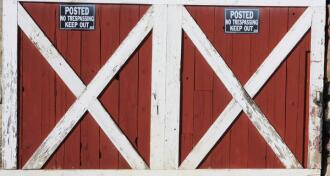The Legal Commercialization of Industrial Hemp in North Carolina
North Carolina is an agricultural power house. The state's farmers contribute over $80 billion to the economy every year and grow all sorts of crops—legally. But some crops are illegal because of public policy or because they create health and/or crime problems. Poppy farming, for example, is illegal because of clear threat—its cultivation is generally perceived to bring the scourge of opiate abuse and violent crime.
The reasons for banning other crops are not so straight forward. Marijuana (also known as cannabis) is both legal and illegal in the United States; and it is criminally dangerous but medically helpful; politically supported, and politically opposed. Tackling the controversial issue of whether marijuana should be legalized is beyond the scope of this article, but you should be aware that marijuana cultivation and its commercialization are illegal in North Carolina.
As attorneys, it's our business to advise clients not to break the law. So, we recommend that farmers stay away from poppy plants and, at least for now in North Carolina, marijuana. But, there is one crop that raises all sorts of legal issues because it is useful, safe, relatively easy to grow, and valuable; yet it is also tainted with illegality. What is it? Hemp. Why is it "tainted?" Because hemp is horticulturally, historically, and politically linked to marijuana.
Aren't Hemp and Marijuana the Same Thing?
Hemp and marijuana are not the same thing. But the law is only now catching up with that fact.
Industrial hemp and marijuana do come from the same family of plants and they do look very similar, but they have significant biological differences and commercial applications. The differences have not stopped hemp from being burdened by its close association with marijuana. This is because, in large part, hemp looks so much like marijuana.
Even though hemp's look is similar to that of marijuana, there are significant differences in their chemical makeup. Marijuana's primary value is its THC, or tetrahydrocannabinol, content. THC is the chemical compound in marijuana responsible for the euphoric high and medicinal benefits associated with it.
In contrast, hemp does not contain enough THC to create a physical reaction in someone who might smoke or ingest it. Instead, hemp's primary value is in its industrial and non-THC related health applications. It is estimated that it is used in more than 25,000 different types of products in a wide variety of areas such as textiles, paper, biofuel, plastics, twine, construction materials, animal bedding, and even environmental remediation. Despite the wide range of possible commercial uses, industrial hemp remains caught in the marijuana dragnet, and thus hemp is not commercially produced on a large scale in the United States. Commercial demand for industrial hemp is primarily satisfied by importing it from about 30 foreign countries where it is grown as an agricultural commodity.
However, change is on the horizon as the United States Congress and the North Carolina General Assembly have learned more about hemp and its positive impact on the agricultural economy. In fact, we now have a legal structure for the domestication of industrial hemp production.
Hemp has arrived in North Carolina, and hopefully it is here to stay. The General Assembly has created an Industrial Hemp Commission and has accepted that local production of hemp is theoretically possible. This emerging area of agriculture presents exciting opportunities for farmers, processors, manufacturers, distributors, and related businesses.
To better understand the legal landscape involving hemp, below is a closer look at some recent changes in the law and context for hemp in North Carolina.
How Did Industrial Hemp Come to North Carolina?
In 2014, Congress passed the Agricultural Act of 2014, which authorized certain research institutions and state agriculture agencies to grow industrial hemp as part of agricultural pilot programs. The North Carolina General Assembly responded, in an overwhelmingly bi-partisan action, by enacting an industrial hemp authorization law in 2015.
The North Carolina law, among other things, created the North Carolina Industrial Hemp Commission and decriminalized the production and use of industrial hemp if certain rules are followed. The Hemp Commission, which operates under the authority of the North Carolina Department of Agriculture, now oversees the production of industrial hemp in North Carolina through the administration of a highly regulated pilot program.
However, hemp is not something to rush into. To quote the Hemp Commission:
Little information exists at this time for the market opportunities to potential North Carolina [hemp] growers. Growers are urged to proceed with caution and closely examine potential market opportunities.
How Do You Grow Hemp Legally in North Carolina?
Hemp can only be grown in North Carolina pursuant to license. The Hemp Commission's rules currently outline two types of industrial hemp cultivation licenses, "Research Only" licenses and "Research with Intent to Market" licenses, and how they may be secured and then lawfully used.
License application fees apply to Research with Intent to Market licenses and start at $250 and increase based on the amount of acres the applicant dedicates to industrial hemp production. Licensure requires that, among other things, the hemp farmer partner with North Carolina State University or North Carolina A&T State University to allow research (for things such as variety selection, pest and disease management, growth patterns and varietal selection, greenhouse strategies, and market studies) and also to submit crop samples for THC sampling.
But before you plan hemp cultivation, you should also closely examine the very real legal obstacles when considering the future of agricultural hemp. Some important legal issues to consider include:
- Who decides when and where hemp can be grown? How are seeds and plants regulated? What can be done with the harvested hemp?
- How can hemp and hemp by-products be imported or exported across state lines or out of the country? Are there any special licenses or procedures involved in importing and exporting hemp?
- What are the legal restrictions on the processing of hemp into finished products? Does it matter if the finished product is rope or oil?
- What special precautions or security measures are needed?
- What if local law enforcement interferes with legitimate hemp production because of a mistaken belief it is marijuana?
- What if criminals try to force the owner or employees of a legitimate hemp activity to mask illegal marijuana commerce?
- Can growers get a bank loan to get into the hemp business?
- How can hemp crops or hemp products be insured at a reasonable rate?
- What are the federal laws related to hemp? Does the recent confusion over whether the United States Department of Justice will more actively prosecute marijuana crimes impact hemp?
These are serious issues unique to hemp.
Has Hemp Taken Root Here?
Absolutely! 2017 saw the first harvest of hemp in North Carolina in over 90 years. Over 100 growers now are participating in North Carolina's Industrial Hemp Pilot Program. Growers are using a wide variety of different methods from conventional open air land setup to more intensive growing in greenhouses and high tunnels.
As of December 2017, North Carolina had approximately 1,900 acres of industrial hemp grown and 176,000 square feet of greenhouse space. In fact, the largest hemp mill in the western hemisphere is located right here in North Carolina. In addition, countless entrepreneurs have entered the chain of commerce by fostering businesses for the utilization of hemp—ranging from synthesis of the derivatives, to packaging and sale of the products, or bringing those products to customers. These businesses operate within the local, national, and international spheres.
What to Watch on the Hemp Horizon
The Hemp Commission is exploring ways to legally expand the use of hemp in North Carolina. Congress and the General Assembly will continue to wrestle with the interplay between marijuana and hemp. But we see a lot of hemp on the horizon for North Carolina farmers, and hemp will be an ever-increasing source of agricultural products and markets, and an important part of North Carolina's future.
For now, however, even as the legal cultivation and use of hemp in North Carolina expands, it is critical to remember that marijuana cultivation is still illegal in North Carolina, and legal hemp growing is still subject to considerable restrictions. Don't ever forget that hemp cannot be grown to mask marijuana—if you comingle marijuana and hemp in the fields, the barns, the processing rooms or anywhere else, you have committed a felony.
We encourage anyone considering hemp cultivation, processing, or distribution to seek legal counsel before investing significant time and money. Ward and Smith's Agribusiness Practice and Government Relations teams can advise you as you work through these and other thorny legal issues.








